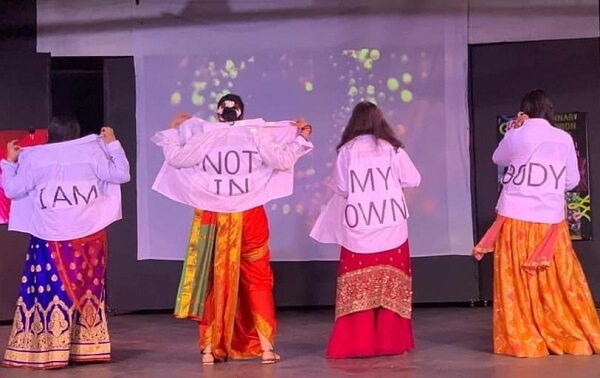When Dinsha Palkhiwala heard Meena Mahanty Kumar talk about her book The Peripheral, he felt a strong urge to take it to the stage.
“It’s a theme that’s never been touched in community theatre,” he told Indian Link. “And yet it’s a contemporary theme that should be talked about more.”
Kumar’s book is based in India’s LGBTQ community, awareness about who is only just seeping through. Abandoned by family, ridiculed by society, and discriminated against by law, the kinnars as they are known, are beginning to fight for themselves where no one else will.
In Pride Month, the Palkhiwala-Kumar project by Natak Mandli became a fitting acknowledgement of the gender diverse in our own community. Its message: accept your kids for who they are, and allow them to thrive.
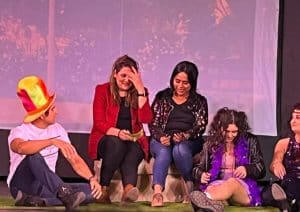
It was the oldest – and youngest – characters that left the lasting impressions in the stage adaptation of The Peripheral.
Suman Mathur as the grandmother Dadi was incredible in her viciousness: it was her savage action that had the brutal impact on an entire family – sadly, her own. As the custodian of ‘family honour’ and the imposer of the weight of expectation on male progeny, Mathur effectively represented the hardline elements of Indian society at large.
Her sheer savagery went some way in convincing us that family prestige is not as important as family harmony, and it need not derive from ‘respectable’ professions or following in the footsteps of elders.
Facing the brunt of Dadi’s wrath was the young Nimesh, played wonderfully by Moksha Joshi. The grandmother’s cruel attack was the final straw for Nimesh, following numerous schoolyard taunts. In that ultimate showdown, Nimesh was definitive in his defiance as he screamed Dadi down (“This is MY choice.”) Equally, his gallant and fearless shielding of his mum came through effectively. (“DO NOT blame my mother!”)
Bravo, Moksha, for playing that transformational episode with such strength that the audience knew exactly how the story would unfold.
Nimesh’s leaving home – and his old life – stamped in his awakening as Nimesha, even as his dad was rendered mute in utter subjugation, and his mum broken to pieces in wretched helplessness. (Some good work by actors Mittal Bhavsar and Zarmar Joshi there, in their brief roles as parents in shackles).
Years later, it would be the other grandmother who would give Nimesha the parental love of which she was so deprived. Namita Matani as Nani shone through brilliantly in her compassion for her grandkids and their partners – accepting them equally, beaming with love, with arms that were waiting to fold around them even if the knees were failing! It was a marvelous performance, shining a light on the qualities of acceptance and inclusion and seeing nothing but the good in others.
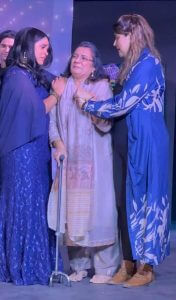
Dadi’s villainous turn, Nimesh’s heroic courage, and Nani’s sheer benevolence, together encapsulated the essence of the story, and all three actors came through superbly.
Saral Somaiya as the adult Nimesha acquitted herself admirably. In her presentation as a self-assured, educated and compassionate human being, who has found her calling as an advocate for others like her but less fortunate, Somaiya went a long way in breaking the myth of kinnars as misfits that must be relegated to the periphery of society. Somaiya had the audience spellbound as she listed an entire gamut of areas where her advocacy was needed – one wondered if viewers felt inadequate in their awareness of the trials and tribulations faced by this community segment.
With her relationship with partner Manoj and their journey in adoption, Somaiya was able to portray the normalcy in kinnar life; they want the same things as heteronormative couples.
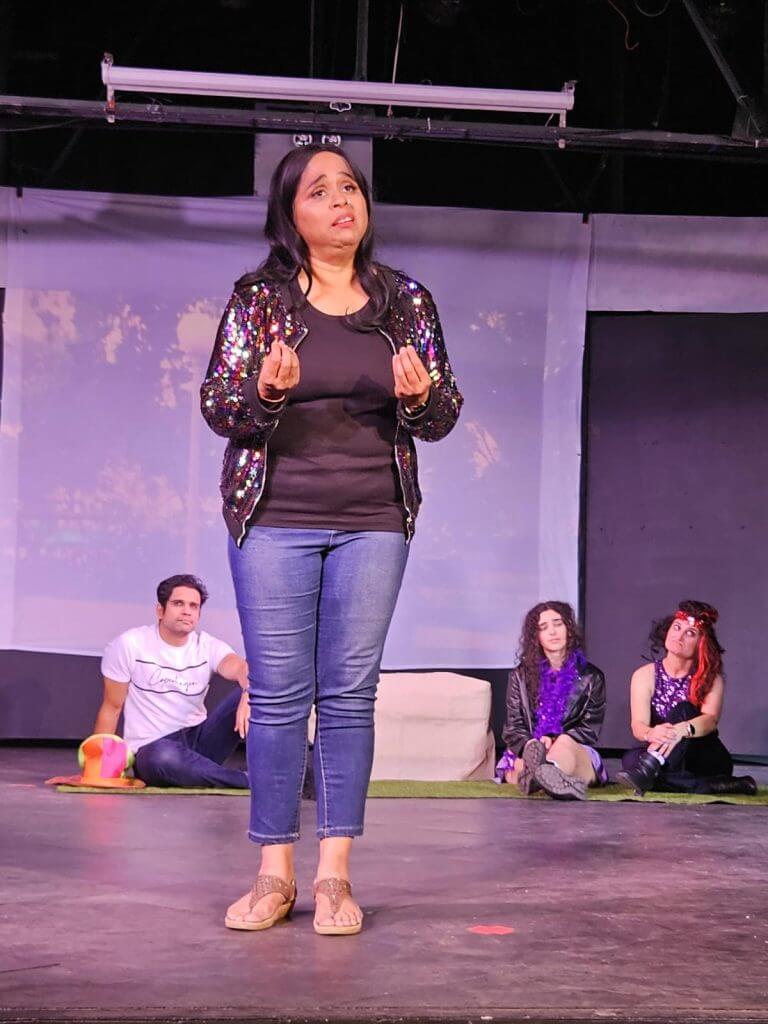
Mansi Gandhi as Rene/Tarini was most effective early on as she cowered in terror at her nightmares. Perhaps this was fitting, given it was these dreams that set the entire story in motion, in her character’s quest for a long-lost brother. And yet, in stark contrast to the book where she remains the central character throughout, we saw her relinquish this role here in favour of Nimesha, who quite became the hero in the second half. As well, Rene’s chemistry with love interest Jai went amiss somewhat, whereas in the book the sexual tension was palpable from the word go. The Rene-Jai relationship deserved more attention: in the book, Rene’s discovery of her own self is perhaps just as important as Nimesha’s story. Because wasn’t Rene a ‘peripheral’ herself – living in a distant land, having lost all her family? The ‘homecoming’ trope is a beautiful fit here: returning home to find the love of her life, and a long-lost brother and grandmother.
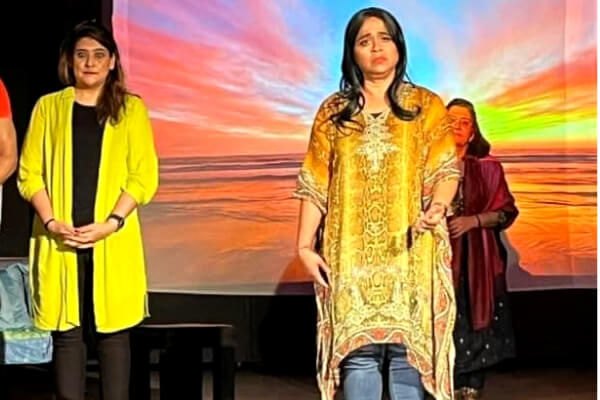
Which brings us to another poignant lesson in this story: we are all peripheral in one way or another. We’ve all felt left out at some stage in our lives – neglected, misunderstood, misrepresented, bullied, discriminated against – simply for being who we are. Should we not use that experience, to better understand the LGBTQs?
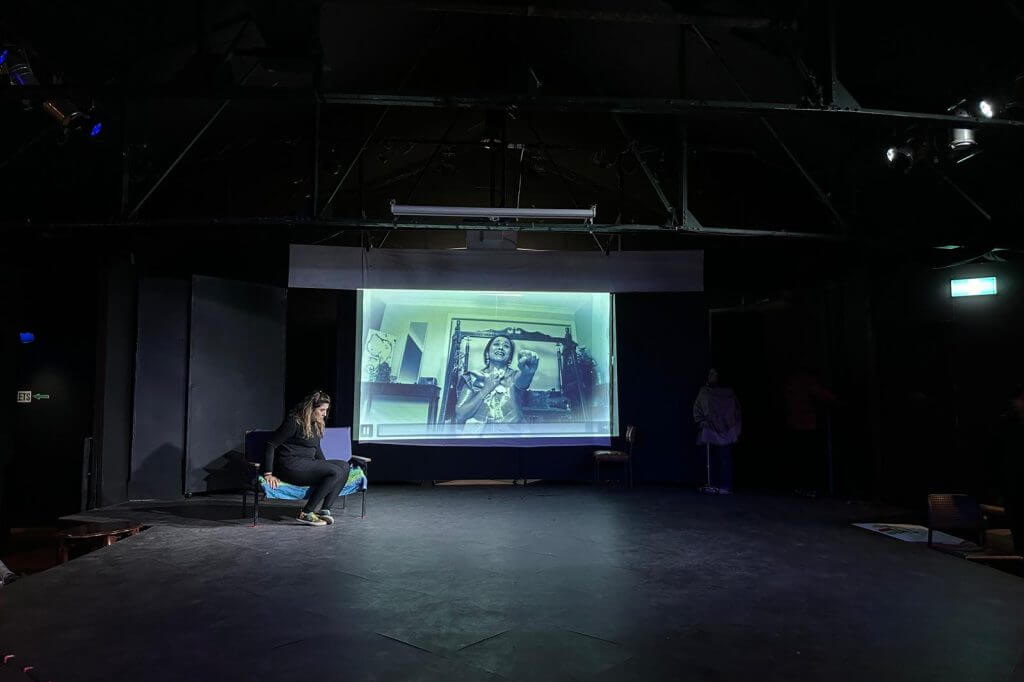
Director Dinsha Palkhiwala introduced some daring innovations – such as multimedia to extend the fictional space beyond the stage (the bumpy autorickshaw drive in Delhi was just as evocative as the scenic hilly road in Kasauli); live music by guitarist Sadiq Rehmani; characters who popped up from within the audience, and a lively fashion show set to foot-tapping music which uplifted the atmosphere post loaded emotional scenes.
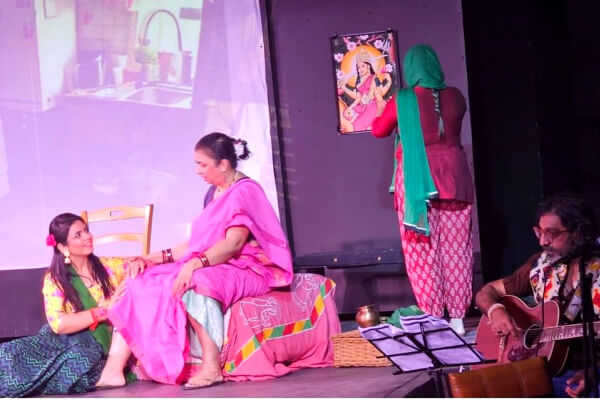
By planting the story right here in Sydney, the message was that this issue could crop up in your own backyard. And if it did, how would you react? If it left you even thinking about what your response might be, then this Natak Mandli production will have done its job.
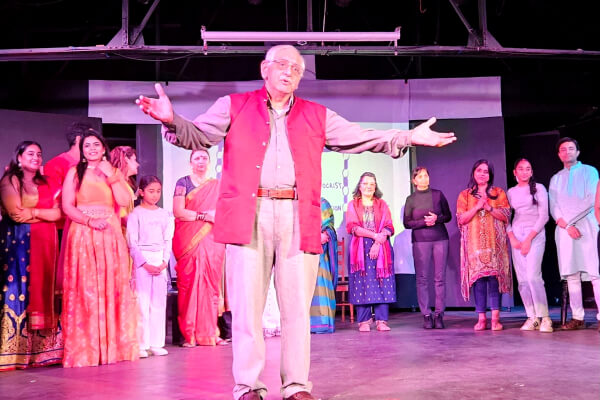
Listen here to Dinsha and Meena talk about The Peripheral with Indian Link Radio’s Sagar Mehrotra
READ ALSO: Review: Jyotsna Joshi’s An Artful Evening



